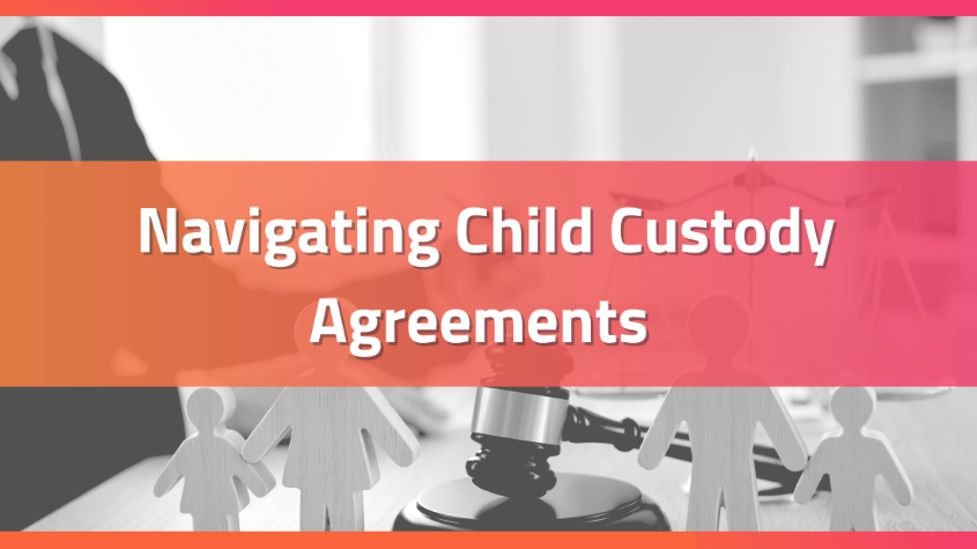Navigating the complexities of child custody can be challenging. Understanding your rights and responsibilities is crucial for making informed decisions that prioritize the well-being of your children. This article provides a comprehensive guide to help you through the process.

Understanding Child Custody
Child custody refers to the legal rights and responsibilities parents have regarding the care and upbringing of their children. It includes both physical custody, which determines where the child lives, and legal custody, which involves decision-making power over the child’s education, health care, and religious upbringing.
Types of Custody Arrangements
Sole Custody
In sole custody arrangements, one parent is granted both physical and legal custody of the child. The non-custodial parent may have visitation rights, but they do not have decision-making authority. Sole custody is typically awarded when one parent is deemed unfit due to issues such as substance abuse or neglect.
Joint Custody
Joint custody, also known as shared custody, involves both parents sharing physical and legal custody of the child. This arrangement encourages both parents to remain actively involved in the child’s life. Joint custody can be beneficial for the child, as it allows them to maintain a strong relationship with both parents.
Split Custody
In split custody, each parent has full custody of one or more of the children. This arrangement is less common and is usually considered when siblings have strong preferences or when one child has special needs that require focused attention from one parent.
Factors Considered in Custody Decisions
Courts prioritize the child’s best interests when making custody decisions. Several factors are considered, including:
- Parental Fitness: The mental and physical health of each parent.
- Child’s Age and Needs: The child’s age, emotional needs, and any special requirements.
- Parent-Child Relationship: The bond between the child and each parent.
- Stability: Each parent’s ability to provide a stable living environment.
- Parental Cooperation: The willingness of each parent to cooperate with the other in raising the child.
Rights and Responsibilities of Parents
Rights
As a parent, you have the right to:
- Spend time with your child.
- Participate in making important decisions about your child’s life.
- Access your child’s medical and educational records.
- Be informed about your child’s well-being.
Responsibilities
Your responsibilities as a parent include:
- Providing a safe and nurturing environment.
- Ensuring your child receives proper education and healthcare.
- Supporting your child’s emotional and physical needs.
- Cooperating with the other parent to make decisions in the child’s best interest.
Preparing for a Custody Battle
Custody disputes can be emotionally draining and stressful. Being well-prepared can make the process smoother. Here are some steps to take:
- Document Everything: Keep detailed records of your interactions with your child and the other parent.
- Seek Legal Counsel: An experienced family law attorney can provide valuable guidance and representation.
- Focus on the Child’s Best Interests: Courts prioritize the child’s well-being, so demonstrate your commitment to providing a stable and loving environment.
- Maintain Open Communication: Try to keep lines of communication open with the other parent, as this can positively impact the court’s decision.
Alternative Dispute Resolution
Not all custody disputes need to be settled in court. Alternative dispute resolution methods, such as mediation or collaborative law, can be effective. These approaches encourage parents to work together to reach a mutually agreeable solution, often resulting in less conflict and better outcomes for the child.
Mediation
Mediation involves a neutral third party who helps parents negotiate and reach a custody agreement. This process is typically less adversarial and can be quicker and more cost-effective than going to court.
Collaborative Law
In collaborative law, both parents and their attorneys work together in a cooperative manner to resolve custody issues. This approach focuses on finding solutions that benefit the entire family, rather than engaging in a contentious court battle.
Conclusion
Navigating child custody requires a clear understanding of your rights and responsibilities. By staying informed, seeking professional advice, and prioritizing your child’s best interests, you can make well-informed decisions that support your family’s well-being. Remember, the goal is to create a stable and loving environment for your child, regardless of the custody arrangement.










